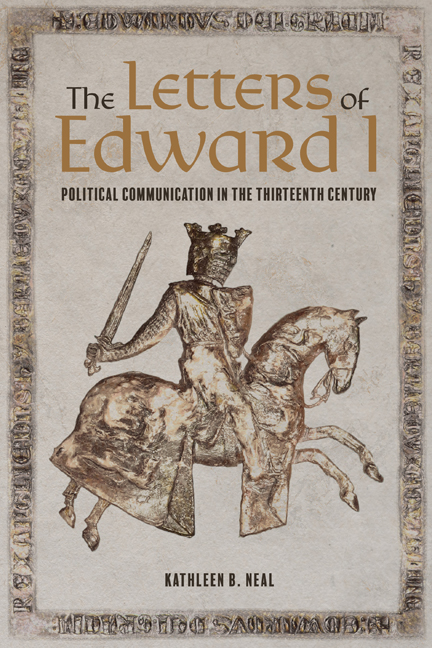Book contents
- Frontmatter
- Dedication
- Contents
- List of Illustrations
- Preface
- Abbreviations
- Introduction: Letters and the Language of Power
- 1 Royal Letters: The Authority of a Form
- 2 Rhetorical Refinement: Epistolary Editing and its Implications
- 3 Announcing the Message: Communities of Reception and Royal Ideology
- 4 ‘Dear Cousin’: Affect and Epistolarity beyond Borders
- 5 Keeping Friends Close: Strategies of Epistolary Alignment
- 6 Rhetoric Under Strain: Re-writing Royal Epistolarity
- Conclusion. Royal Epistolarity: The Voice of the King
- Appendix
- Bibliography
- Acknowledgements
- Index
Conclusion. Royal Epistolarity: The Voice of the King
Published online by Cambridge University Press: 09 February 2021
- Frontmatter
- Dedication
- Contents
- List of Illustrations
- Preface
- Abbreviations
- Introduction: Letters and the Language of Power
- 1 Royal Letters: The Authority of a Form
- 2 Rhetorical Refinement: Epistolary Editing and its Implications
- 3 Announcing the Message: Communities of Reception and Royal Ideology
- 4 ‘Dear Cousin’: Affect and Epistolarity beyond Borders
- 5 Keeping Friends Close: Strategies of Epistolary Alignment
- 6 Rhetoric Under Strain: Re-writing Royal Epistolarity
- Conclusion. Royal Epistolarity: The Voice of the King
- Appendix
- Bibliography
- Acknowledgements
- Index
Summary
Letters were among a king's most powerful tools for expressing the ideal shape of his polity. The formulae from which they crafted their message were not merely ‘degraded and mechanical’ conveniences, hampering true expression. They were inherited forms of a powerfully authoritative tradition of epistolarity descended from classical antecedents and developed in the great chanceries of the papacy and empire. In England, these norms met and reinforced the received authority of the writ, in which the king's position as the fount of justice in the realm was embodied and expressed.
This book began from the conviction that formulae have meaning. In the case of English royal correspondence, this was literally true. Lawmen of the later-thirteenth century produced treatise upon treatise discussing the proper selection and wording of writs for certain forms of action. It was not only writs de cursu that followed formulae, however. Writs de precepto also borrowed from a restricted pool of royal rhetorical norms. The formulaic nature and the legal heritage of Edward's letters were integral to the rhetorical attempt to impose a royal construction on events and recipients. Working within these linguistic and structural boundaries did not deprive royal letters of communicative force. Rather, it invested them with the power of an ‘official language’, sanctioned by tradition and enforceable in law, as recognizable in its materiality as in its expression. Within this ‘official language’, the smallest variation of rhetorical emphasis could convey shifts in royal policy, and the king's relationship to his interlocutor(s).
Royal clerks were acutely attentive to the possibility of legal or political problems in letters. The legal associations of letters could work against the king if any infelicities crept into his epistolary voice, conveying unwonted authority upon them. The regular work of royal clerks – selected and trained carefully under the supervision of the king and his most senior administrators for just this purpose – entailed selecting appropriate forms and styles; adjusting structure, vocabulary and idiom; and adding, deleting and redrafting to perfect the expression of the royal voice, tailored to every situation. Edward I's grasp of the importance of this labour is reflected in his efforts to attract experienced clerks from outside the realm into his employment, and his commitment to promoting the careers of those who proved themselves in his administration.
- Type
- Chapter
- Information
- The Letters of Edward IPolitical Communication in the Thirteenth Century, pp. 180 - 183Publisher: Boydell & BrewerPrint publication year: 2021



